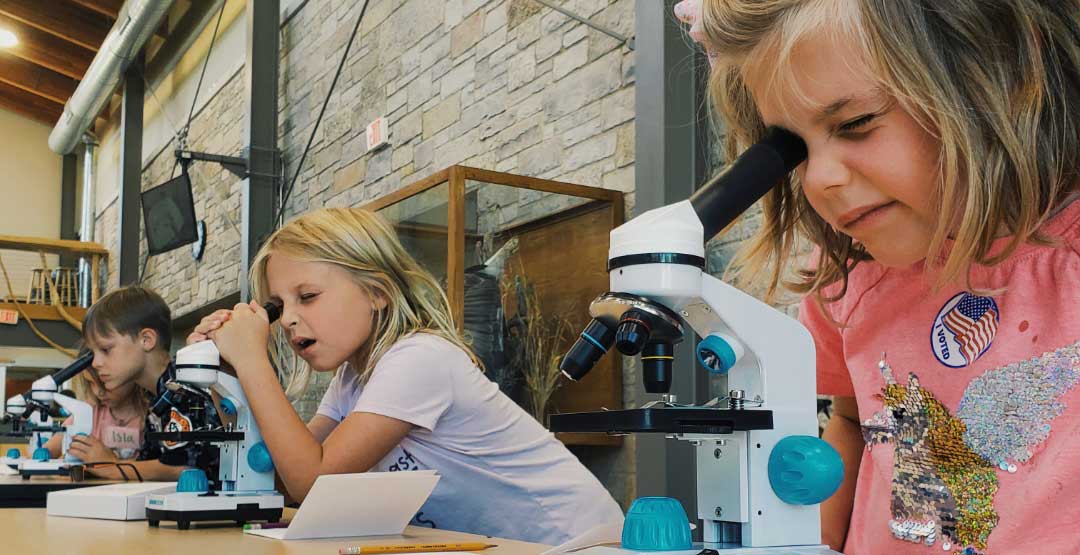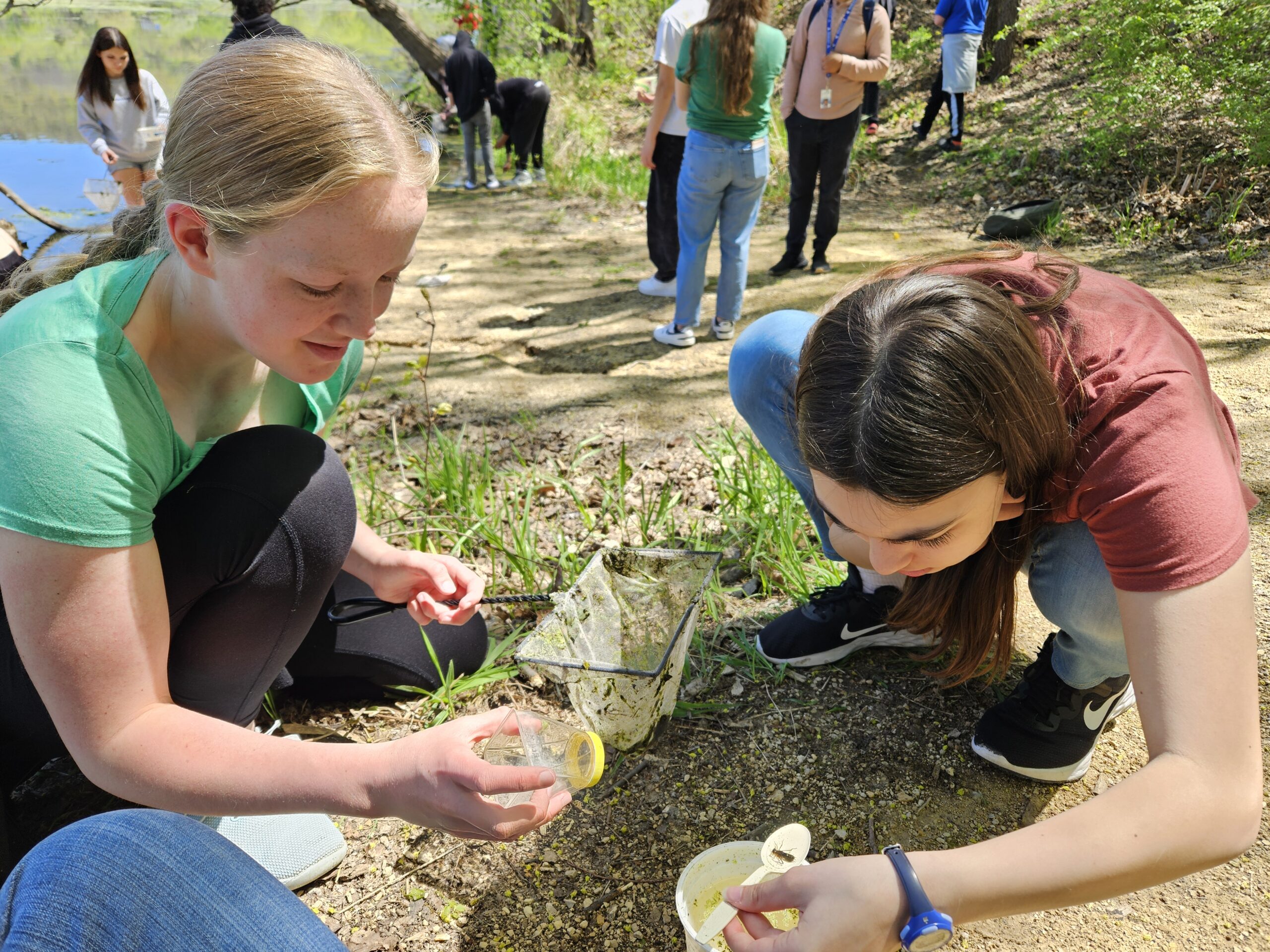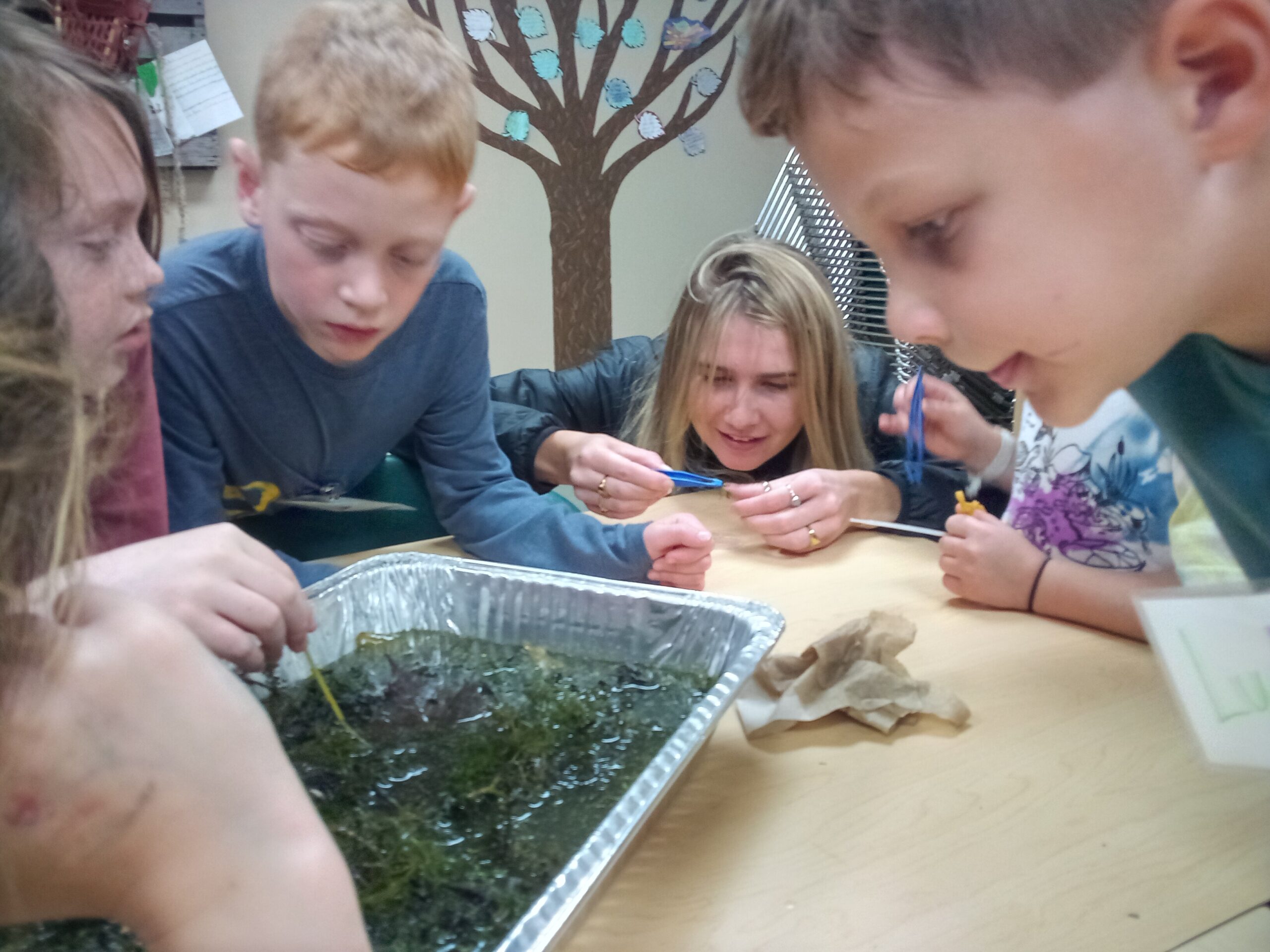Make connections between school and life through active explorations!
Our Environmental Education Program engages students from the La Crosse School District and surrounding schools in meaningful, hands-on outdoor experiences that support and enrich students and teachers in their science curricula or cross-curricular ties.


Nature Education Days for Schools at The Nature Place and/or Your School
The Nature Place can bring life to your lessons with interactive explorations.
Whether you are looking to FOSSter an interest in your science unit, create cross-curricular ties with reading, math, history or social studies units, reward your class with an outdoor experience or simply get outdoors – we would love to work with you!
Contact
Cindy Blobaum
Environmental Education Program Manager
Email Cindy or call 608-860-5363

Homeschool Science Series
We offer Homeschool Science Series every fall, winter, and spring for ages 6-12. Each series meets once a week for 1.5 hours for 4 weeks. The fall session focuses on a life science topic, winter has a physical science theme, and the spring session explores an area of earth science. Pre-registration is required and space is limited to 16 participants.
Outdoor Education Programs
Or request a custom program to meet your needs!
Preschool-Kindergarten Programs
(1 Hour)
Take a Walk on the Wild Side
- Discuss signs of the season
- Explore habitats using senses
- Find and compare natural items - seeds, rocks, feathers, leaves, etc.
Critter Capers
- Learn about animal adaptations by investigating artifacts (skin coverings, skulls, etc.)
- Meet a live education animal
- Includes related book, and a song or fingerplay
1st & 2nd Grade Programs
(1.5 Hours)
Incredible Insects (best done Sept/Oct.)
- Learn insect anatomy and life cycles
- Catch, compare and identify insects and other arthropods from various habitats (park, forest, prairie, marsh)
- During monarch migration (Sept.) tag monarch butterflies (weather and butterflies permitting)
Wisconsin Wildlife
- Review basic animal classifications (birds, mammals, amphibians, reptiles, fish, arthropods)
- Compare adaptations of local wildlife through hands-on examination of skulls, skins and tracks.
- Learn about predator/prey relationships through games and discussions
3rd Grade Programs
(2 Hours)
Let's Move!
- exploration of different types of motion and movement, created by external (weather, earth forces) and internal (animal) actions.
Decomposers - getting the dirt on dirt!
- Leaf litter and other strata are explored for fungi, isopods, worms and more!
4th & 5th Grade Programs
(2 Hours)
Driftless geology and landforms
- Overview of the rock cycle
- Introduction to fossil formation and identification
- Can include field work at the quarry.
Sunshine and Shadows
- Overview of Earth's movements in the solar system
- Recording of sun's movement through shadow exploration
- Creation of a simple analemmatic sundial
Watersheds
- create an entire class working model of the Mississippi River watershed
- investigate the role of wetlands in water quality through plant and animal adventures
Snowshoeing (conditions permitting)
- An active adventure available when snow conditions permit.
Middle-School Programs
Diversity of Life
Choose your focus for learning to find/study and identify:
- Aquatic macroinvertebrates
- Birds
- Insects (fall only)
- Reptiles
- Skulls
Sustainability Games
- For the Common Good
- Oh Deer!
- Turtle Trials
- And others!
Other Program Options
Mapping It Learn rudimentary skills making and using topographic maps.
Navigation Introduction to compass and/or GPS skills.
Geology Rocks! From elemental geology to a deeper experience in understanding the earth - we can cover it for any grade level.
Water Quality Matters! Learn how to assess water quality through biotic and abiotic measurments.
Survival Skills Learn how to prepare and survive the unexpected with hands-on investigations making it real.
Programs available at your school
- Animal adaptations
- Geology
- Exploring a bucket of marsh muck
- Others upon request.
GENERAL FORMAT
- One or two-hour sessions (depending on age) with maximum of 2 per day
- Linked to curriculum, tailored to classroom needs
- Group size limited to maintain low naturalist/learner ratio.
To reserve your day and time for any program or if you have questions, contact
Cindy Blobaum 608-860-6864 ext. 234 or email [email protected]
Fees:
Onsite programs - offered Sept. 15, 2024 - June 4, 2025
$75 for 1 - 1.5 hour program at TNP for up to 16 preK to 22 2nd grade students
$125 for 2 hour program at TNP for up to 28 3rd - 12th grade students
At your site programs - offered Nov. - March
mileage fees added for programs over 15 miles from TNP
Each program is designed for one classroom at a time and is 45 - 50 minutes long
$125 for first program each day, $100 for second program, $75 for each additional program (limit of 5 programs per day).
Programs are reserved on a first-come, first served basis.
Testimonials:
“My daughter loved it and we are still talking about it!! It was fun, safe, educational! It was very well organized and planned out.”
“The staff were personable and greeted my daughter by name. Lots of creative activities too. I highly recommend this program. We will definitely do it again!”
“My son loved his program and was sad when it was over.”

